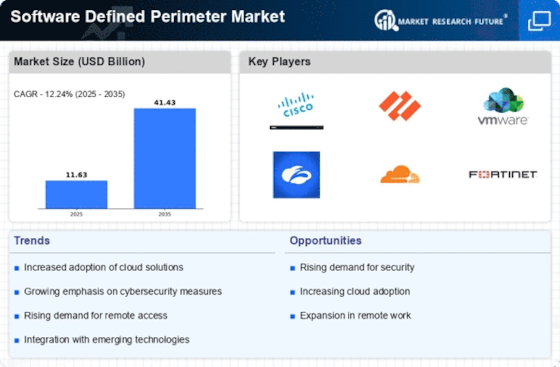Market Analysis
In-depth Analysis of Software Defined Perimeter Market Industry Landscape
The Software Defined Perimeter (SDP) industry is changing due to network safety threats and the growing need for secure data access. The "Zero Trust" security paradigm of SDP secures and controls access to organizations, applications, and information. Associations' growing awareness of conventional security limits is a significant market factor affecting the SDP industry. Heritage perimeter-based security methods have failed even with sophisticated digital threats, prompting further efforts to adopt SDP arrangements.
Rapid use of distributed computing and mobile phones have exacerbated safety concerns. SDP uses the norm of least honor to ensure customers only approach the assets they require for their tasks. This reduces the attack surface and unauthorised access, improving security. Thus, organizations in finance, medicine, and government are increasingly seeing the value of SDP in preserving their core resources.
The growing integration of AI and ML in SDP structures is another important industry factor. These innovative technologies improve risk detection and response. Simulated intelligence and ML computations may identify possible security breaches by analyzing customer behavior and identifying patterns, allowing companies to proactively address risks. This collaboration strengthens security and boosts SDP productivity by automating risk mitigation.
A growing number of merchants selling separate SDP goods to incorporated security stages describes the competitive SDP industry. This competition is encouraging innovation and forcing sellers to provide extras like multi-cloud support, adaptability, and easy integration with current foundations. As associations seek comprehensive security, suppliers are expanding their offerings to meet a wider variety of network safety demands.
Another key SDP market factor is interoperability. SDP solutions that seamlessly integrate with current infrastructure are in demand as companies combine on-premises and cloud-based solutions. SDP vendors are increasingly differentiated by their ability to provide a cohesive and powerful security system under various scenarios. This emphasis on interoperability ensures associations to conduct SDP without disrupting their operations.


















Leave a Comment